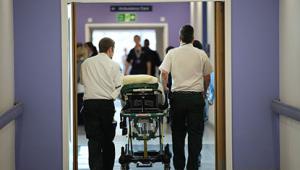By Vivienne Russell
Public satisfaction with the NHS fell sharply between 2010 and 2011, according to health think-tank the King’s Fund.
Data from the British Social Attitudes Survey show that in 2010 70% of the public were happy with the NHS but by 2011 this had plummeted to 58%. This is the largest fall since the survey began in 1983 and follows ten years of improving results.However, satisfaction with the health service remains at its third highest level.
This year, the King’s Fund sponsored the health questions in the annual poll. More than 1,000 people were surveyed between July and November last year, which coincided with the first year of a four-year real-terms funding freeze in the NHS as well as sustained media coverage of the government’s health reforms.
Satisfaction was found to have declined across supporters of all the main political parties. It was sharpest among Labour voters, falling from 74% in 2010 to 61% in 2011. Conservative supporters recorded a 4% fall and Liberal Democrats, 7%.
Individual NHS services have also recorded declining satisfaction, including GP services, inpatient services, outpatient services and A&E services. The only service to buck the trend is dentistry, where satisfaction improved to 56% in 2011, up from 51% in 2010.
The King’s Fund concludes that falling satisfaction is less likely to reflect a deterioration in services than concern over the government’s health reforms and funding cuts.
John Appleby, the King’s Fund’s chief economist, said the survey provided an important barometer of how the public views the NHS.
‘The run of year-on-year increases in NHS satisfaction had to come to an end at some stage, and it is not surprising this has happened when the NHS is facing a well-publicised spending squeeze,’ he said.
‘Nevertheless, it is something of a shock that it has fallen so significantly. This will be a concern to the government given that it appears to be closely linked with the debate on its NHS reforms.’
Commenting on the findings, Mike Farrar, chief executive of the NHS Confederation, said the survey results showed that the public had become worried and confused about NHS reform.
He said: ‘Over the coming months, it is going to be more important than ever that the government and the NHS communicate effectively the financial and service challenges we face.
‘The NHS has got to respond to massive financial pressure and the changing nature of health and social care in a way that takes patients and the public with us. It will be much harder to make the changes to service necessary if public perception and confidence deteriorates.’






















